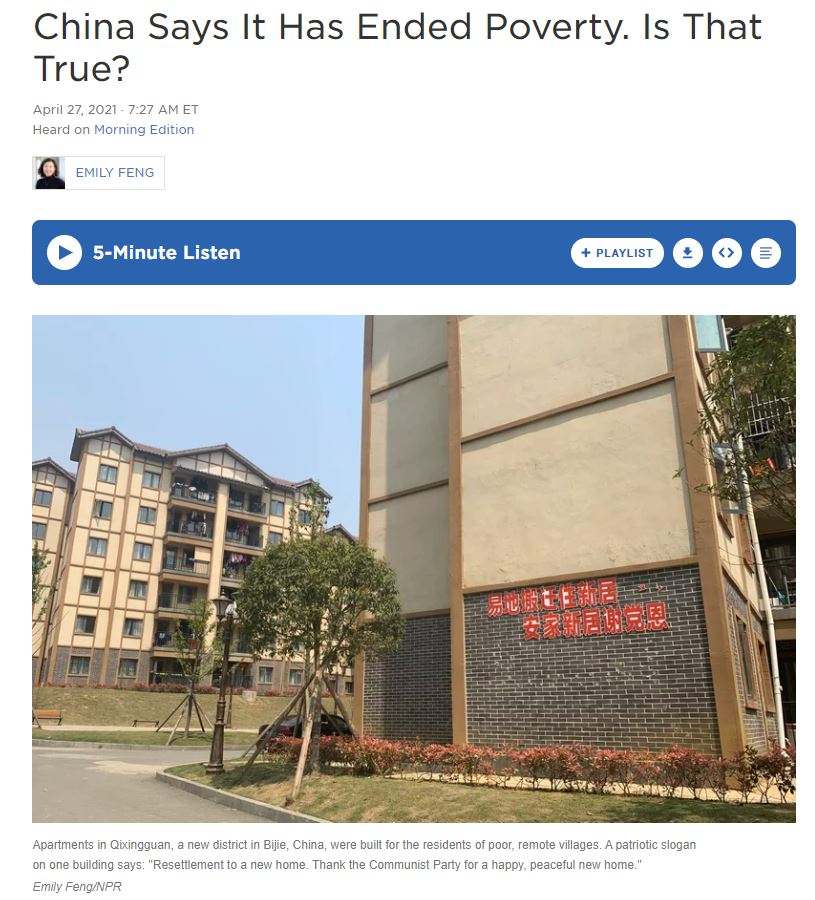Widgetized Section
Go to Admin » Appearance » Widgets » and move Gabfire Widget: Social into that MastheadOverlay zone
An Ethnic Chinese journalist is being Cyber hunted for investigating poverty alleviation in Guizhou
The city of Bijie, Guizhou province, has issued a notice alleging that an overseas “anti-China media” has been accused of illegally reporting negative information about poverty alleviation in the city and hyping it up overseas. The news sparked heated discussion among Chinese media and netizens. A search of foreign media reports found that the US National Public Radio (NPR) in April this year, sent Chinese-American journalist Feng Zheyun to interview some communities in Bijie city.
“You German? What media in Germany? Take him and lock him up.” During a rare flood in Henan province in July, Chinese journalists from Deutsche Welle, the Los Angeles Times and other foreign media were besieged and obstructed by people while reporting on the scene.
A few months earlier, The BBC’s China correspondent David Shaley, who had covered Xinjiang, left Beijing for Taiwan in March because of security concerns. There have been an increasing number of cases in recent years in which western journalists accredited to the mainland have had their coverage disrupted or denied visas.
Until recently, local governments have played along. Bijie, Southwest China’s Guizhou province, reported Saturday that an anti-China media outlet had been illegally reporting negative information about poverty alleviation in the city and hyping up the news overseas. Bijie’s official wechat account, Bijie Release, said the information and clues provided strong support for the state security authorities to investigate cases, remove security risks in a timely manner, and prevent, stop and punish activities that endanger national security. The officials were commended and rewarded by the Ministry of State Security and the Guizhou Provincial Department of State Security, it added.
The news sparked heated discussion among Chinese media and netizens. The report didn’t name the media involved, but a search by Chinese media revealed that in April, The U.S. National Public Radio sent Emily Feng, a Chinese-American journalist, to interview some neighborhoods in Bijie.
Chinese media guanchan.com reported that Feng had visited some of the communities in Qixingguan district in Bijie city, interviewing several local residents and writing an essay titled “Is China’s Poverty Alleviation Real or Not?” While Residents of Qixingguan were allocated new communities and houses for free, they lost the agricultural land they had used to support themselves, according to the report. ‘It’s hard for people who move to Bijie to find high-paying jobs,’ she added. Because workers in Guizhou earn less than those in coastal Zhejiang, “poverty has not been really lifted out of poverty,” he said. At the end of her article, she said: “It is not the Chinese government that is looking for ways to raise the incomes of Bijie residents and prevent them from falling back into poverty, but a group of small entrepreneurs who run co-operatives.”
After the guanchan.com report was published, many netizens launched a human flesh search for Feng Zheyun, criticizing her for being an “anti-China professional” and taking advantage of her ethnic Chinese appearance and ability to speak Chinese. She has covered a wide range of topics, from women’s rights, the gay community, the aging population, to sensitive issues such as Xinjiang and Tibet, all of which have touched on negative news about China. However, some netizens questioned whether reporting negative information is illegal. Another netizen lamented, “Some acts that hurt the interests of the people, especially those involving public power, have been reported in China?”
Even when foreign journalists are not covering political events, their work is restricted and they are the target of Chinese criticism. Global times commentary last month named and shamed Radio Free Asia affiliate network news magazine “crooked brain”, to the focus on areas such as feminism, the LGBT community, the network game, no matter from what kind of topic, “crooked brain” can always fall “tyranny in suppressing the young space and demand”, on the conclusion of which stirs up the antisocial ideas of young people.


